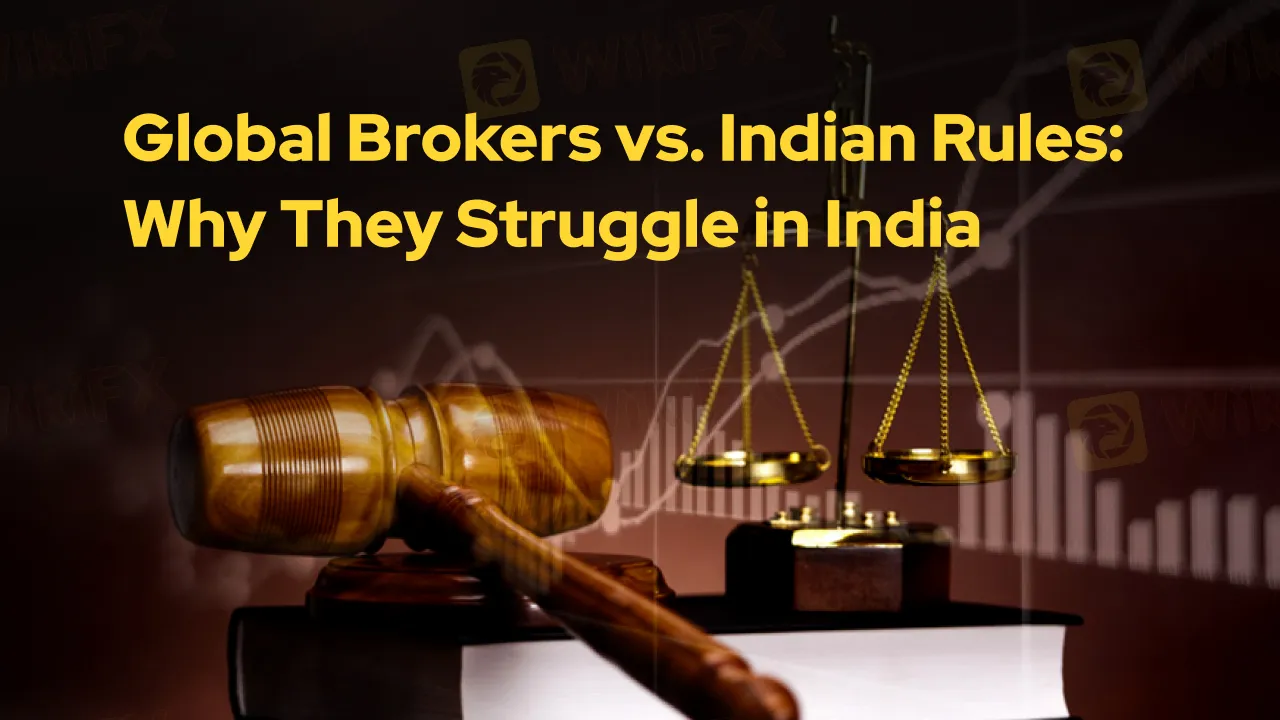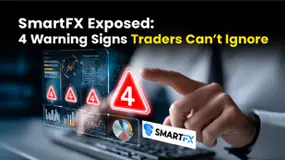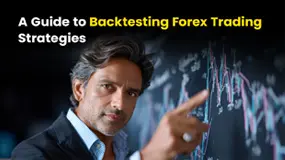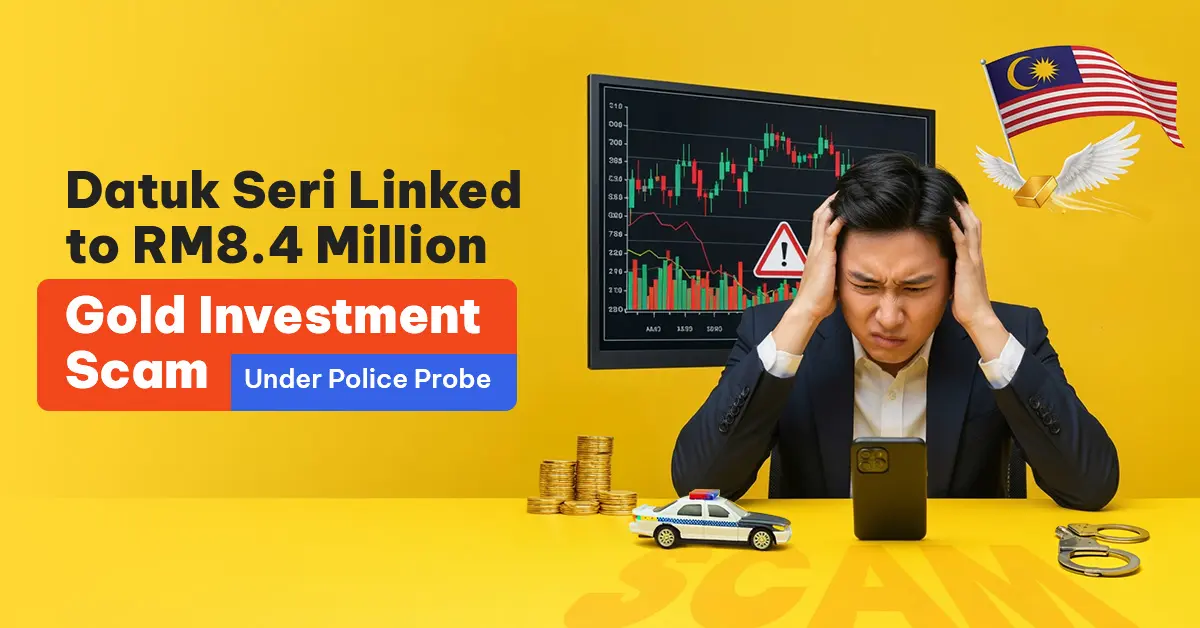简体中文
繁體中文
English
Pусский
日本語
ภาษาไทย
Tiếng Việt
Bahasa Indonesia
Español
हिन्दी
Filippiiniläinen
Français
Deutsch
Português
Türkçe
한국어
العربية
Global Brokers Vs. Indian Rules: Why They Struggle in India
Abstract:RBI issued a warning last year against 75 forex brokers. Those brokers are globally popular and regulated in other countries, but they are banned in India. Only few brokers even have physical offices located in India. So, why do global brokers face so many challenges in entering the Indian market?

The Central Bank of India, a (RBI) issued a warning last year against 75 forex brokers. Those brokers are globally popular and regulated in other countries, but they are banned in India. Only few brokers even have physical offices located in India. So, why do global brokers face so many challenges in entering the Indian market?
1. Strict Regulatory Framework
Indias financial markets are governed by the Securities and Exchange Board of India (SEBI), which enforces tight rules to protect retail investors. Only SEBI-registered entities can legally offer investment or trading services. Most international brokers are not registered with SEBI, making their operations in India non-compliant.

2. Restrictions on Forex Trading
The Reserve Bank of India (RBI) allows forex trading only in currency pairs involving the Indian Rupee (INR) and only through recognized Indian exchanges (like NSE or BSE). International brokers offering global currency pairs (like EUR/USD or GBP/JPY) are technically offering services outside RBIs legal scope for Indian residents.
3. Banking & Payment Barriers
Indian banks are required to report and restrict forex-related payments to unregulated offshore entities. This makes it difficult for traders to deposit or withdraw funds from international platforms using standard payment methods.

4. Legal Risks for Traders and Brokers
Indian residents using unauthorized platforms risk violating FEMA (Foreign Exchange Management Act) rules. Likewise, brokers operating without SEBI approval may face legal action or blocking by Indian authorities.
5. Regulatory Conflict
Even if a broker is regulated in top-tier jurisdictions like the UK (FCA), Australia (ASIC), or Cyprus (CySEC), that license does not apply in India. The Indian government does not recognize foreign regulation for local operation.
6. Blacklist of RBI
The RBI has publicly warned against dozens of foreign brokers and listed them as unapproved. This discourages investors and damages the broker's reputation in the Indian market.
Stay Updated—Join WikiFX India Community
Want to stay informed about the latest Forex trends, news, and learning opportunities? Join our Telegram community: WikiFX India. We focus solely on educational updates, market insights, and verified promotional alerts. This telegram group does not provide investment advice, financial signals, or trading recommendations.
Please note: This article is for informational purposes only and does not constitute financial advice.

Disclaimer:
The views in this article only represent the author's personal views, and do not constitute investment advice on this platform. This platform does not guarantee the accuracy, completeness and timeliness of the information in the article, and will not be liable for any loss caused by the use of or reliance on the information in the article.
Read more

SmartFX Exposed: 4 Warning Signs Traders Can’t Ignore
Facing losses due to manipulative forex trading that takes centre stage at SmartFX? Move out of this ship before it sinks and leaves you with virtually no capital on hand. In this article, we will expose SmartFX by showcasing its four red flags that traders like you cannot ignore.

Is India-Based Groww an Investment Scam? 5 Truths to Know
Groww is an India-based broker that is gaining popularity rapidly in the country. You will often see its ads on YouTube and other social media platforms. This broker is promoting itself aggressively. But before you invest with this broker, here are 5 red flags you should know.

A Guide to Backtesting Forex Trading Strategies
As one of the most liquid and widely traded markets globally, the forex market offers traders immense earning opportunities. However, currency trading can present risks too because you may trade leveraged positions, potentially resulting in significant losses should things go wrong. Backtesting forex trading strategies before investing in a strategy is crucial. Should you fail to test it, you may end up risking time and capital on a strategy that doesn’t hold an edge. In this article, we will discuss backtesting a forex trading strategy. Read on!

Datuk Seri Linked to RM8.4 Million Gold Investment Scam Under Police Probe
Malaysian police are investigating a gold investment scam that has cheated 37 people out of more than RM8.4 million, with a businessman holding the honorific title ‘Datuk Seri’ believed to be the mastermind.
WikiFX Broker
Latest News
Charles Schwab Forex Review 2025: What Traders Should Know
The Global Inflation Outlook
What WikiFX Found When It Looked Into XS
Datuk Seri Linked to RM8.4 Million Gold Investment Scam Under Police Probe
The Psychology Behind the Ascending Triangle Pattern in Forex
Olymptrade Review 2025: Is It Safe or a Risky Bet?
Revealing the Art of Forex Spread Betting
EC Markets Enters Mexico City, Accelerates LATAM Push
Scam Warning from NZ FMA: Beware of Unauthorised Firms
Top CMA-Regulated Forex Brokers in Kenya 2025
Currency Calculator


